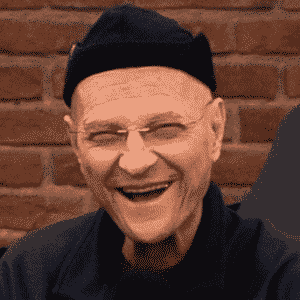please visit : http://www.aamindell.net/
Arnold Mindell:
Mindell (born 1940), married to Amy Mindell, is an American physicist, psychotherapist, writer, and the founder of Process Oriented Psychology. He lives in Portland, Oregon. His children, Lara Mindell and Robin Mindell, live in Switzerland and both work as psychotherapists. Arnold Mindell has written 19 books published in 20 languages.
After graduating with a master’s degree from MIT in Cambridge, Massachusetts, Mindell went to Zurich, Switzerland to continue his physics studies.
Jung and analysis
While in Zurich, Mindell became aware of the work of psychiatrist C.G. Jung and shifted his emphasis to studying analytical psychology at the C.G. Jung Institute, where he graduated as a Jungian analyst. It was also at the C.G. Jung Institute, where he met Dr. Marie-Louise von Franz, who at that time was working on the relationship between psyche and matter. Realizing that body experience was not yet integrated with dream work, Mindell became fascinated by connections between body experience, particularly physical symptoms, and how these are reflected in dreams. In 1972 he received his PhD from the Union Institute for his work on synchronicity. In 1977, he became a Jungian training analyst. Mindell published his research in his first book, Dreambody: The Body’s Role in Revealing the Self in 1982. His findings led Mindell to investigate how the dreaming mind produces unconscious or “double signals” in us while we are in relationship with others. He found that bringing those signals from the background to the foreground made interpersonal communication easier.
Process work
Because of his focus on tracking signals and processes, Mindell began to call this work “process-oriented psychology.” His interest in relationships evolved into the study of conflicts in large groups. He found that the dream processes he had identified on an individual and dyadic relationship level were also helpful in solving problems in large, socially diverse groups of people. In groups, the process was carried not only by individuals, but by “roles” that could be fulfilled by each individual in the group. “Ghost roles” were roles that were implied by the behavior of the group, but with which no individual would identify.
After writing a series of books on these discoveries, Arnold Mindell became interested in physics again and returned to the study of small, subtle signals that are usually ignored in more classical psychological approaches. Along with his partner and wife Amy Mindell, Mindell began exploring new methods of working with people trapped in comatose, vegetative, and near-death states of consciousness. Recently, his interest in quantum physics has prompted him to explore the interrelationships between psychology and theoretical physics and find new ways to work with subtle states of consciousness. He now uses field, wave, and vector concepts to understand preverbal, pre-dream-like states of consciousness. Mindell is actively involved in a large international learning community that researches, studies and teaches process work. He works with individuals, groups and cities to understand each other and process their problems. Arnold Mindell says of his own motivation: “I’m still in love with the idea of nature, and following the Tao seems to remain the terrifying and romantic backdrop of everything I do.”
See also : Process Work on Wikpedia

